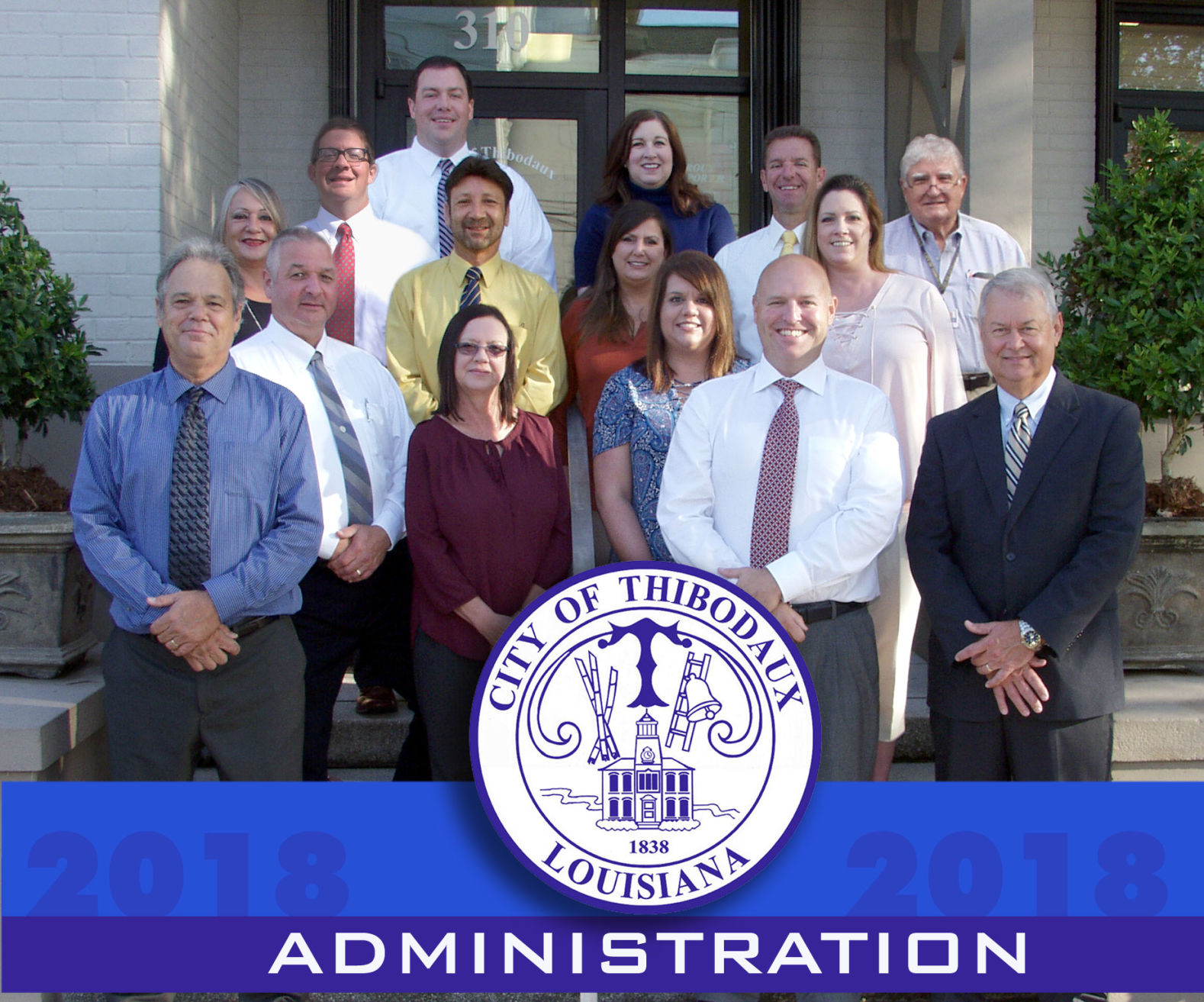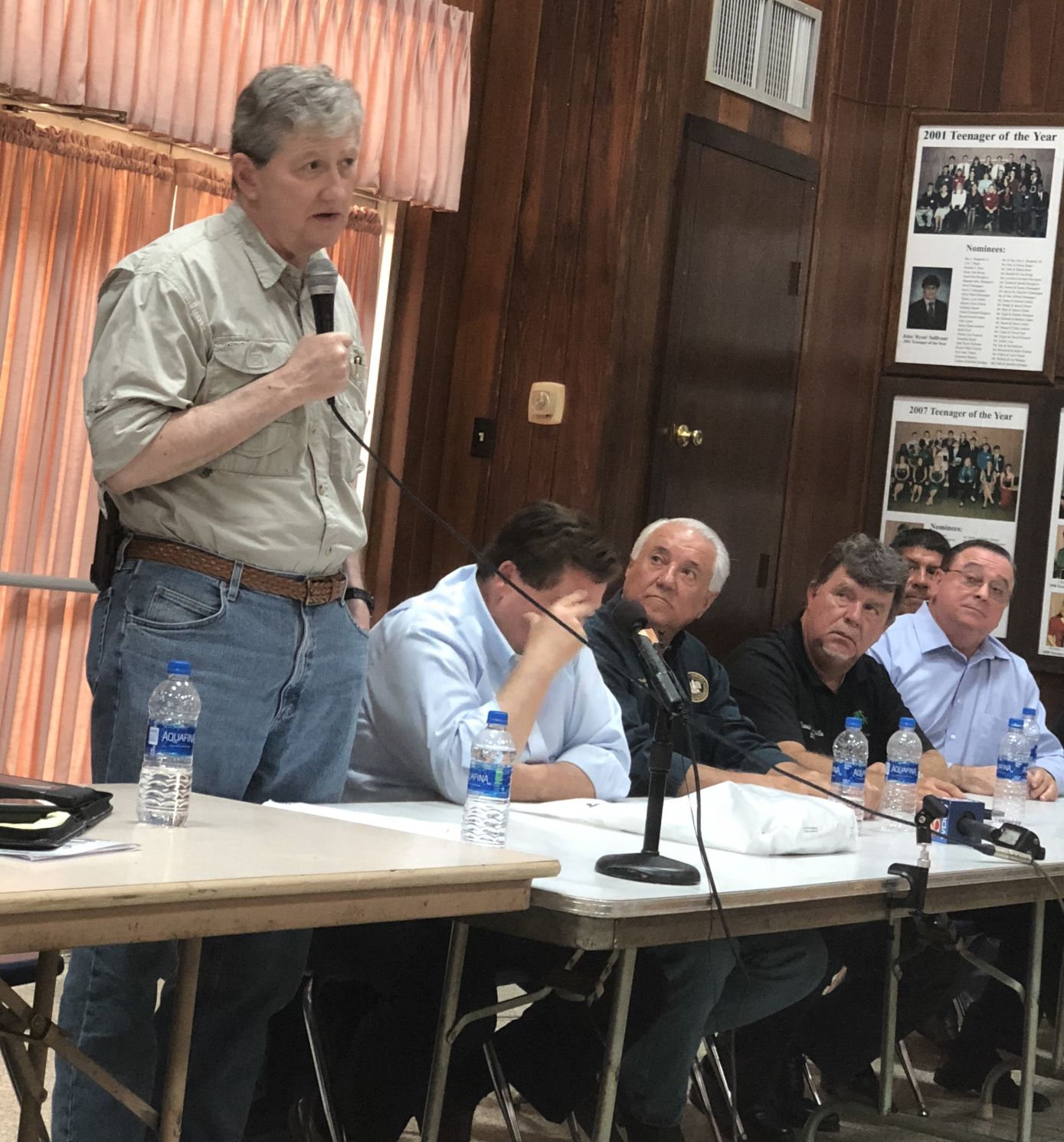
TPD looking to identify ‘person of interest’ in case
June 12, 2018
Future parking lot to generate park revenue
June 13, 2018Louisiana’s lieutenant governor and one of its two U.S. senators last week made pledges to local shrimpers for direct actions they will take to obtain relief from a disintegrating market dominated by overseas shrimp they maintain jeopardizes consumer safety and their livelihoods.
Close to 300 shrimpers, their families and supporters crowded a Houma American Legion hall sponsored by the Louisiana Shrimp Association Friday afternoon.
Sen. John Kennedy R-La, Lt. Gov. Billy Nungesser and State Rep Truck Gisclair, along with other officials or their representatives, listened for close to two hours as fishermen aired their concerns and floated favored solutions. Dockside prices for smaller shrimp have dropped to 50 cents and in some cases as low as 35 cents per pound
the same sizes in years gone by have earned double and in some cases triple that. Some have described the crisis as the worst they have encountered since the turn of this century, when unchecked dumping of overseas, aquaculture shrimp decimated the local industry.
Several times during the meeting, fishermen said they want President Donald Trump to be made aware of their plight. There were several offers voiced by fishermen to come cook their shrimp at the White House.
Kennedy, who has already communicated with Trump on the matter, said he will speak with the president again after he returns to Washington D.C., as well as the U.S. Trade Representative.
“Subsidizing a product, improper labeling and sending a product that is dangerous, that’s not free trade, that’s not fair trade,” Kennedy said. He iterated concerns that tariffs may not be the answer to the problem. Some punitive tariffs are in place on foreign shrimp. But trae attorneys, market experts and Kennedy have all stated that some countries send their shrimp to other nations, making it appear to be from those destinations rather than their true home ports, to avoid paying the fees.
Drawing on a proposal made by Nungesser, Kennedy said he approves of an inspection fee on all foreign shrimp coming into U.S. ports.
A lingering complaint about overseas shrimp is that those raised in aquaculture operations are fed quantities of antibiotics to ward off disease.
According to a report earlier this year from the US Food and Drug Administration, about 4/5 of the seafood consumed in the U.S. overall is imported from 62 nations. China remains the biggest producer of aquacultured seafood in the world, accounting for 70 percent of the total production and 55 percent of the total value of aquacultured seafood exported worldwide.
“We are requesting immediately to impose a safety fee on every pound of imported seafood of ten cents,” Nungesser said. “We are assured that if we do that most of that seafood will be rejected. We know a tariff is very difficult. What they grow this stuff in they need to treat them with with antibiotics to kill the garbage they are growing in. If you eat Chinese shrimp for five or ten years and you go to your doctor and he gives you some antibiotics for your illness and they don’t work so well, you’ve grown immune to the antibiotics, you got that from foreign shrimp. I just pray we ca get something accomplished. The price is still the same.”
The crowd included fishermen from Grand Isle, Plaquemines, several communities in Lafourche, and also Terrebonne Parish. A few came from points further west. The grievances were the same. Without some type of assistance on prices many will not be fishing next year.
Among officials present who did not speak were Lafourche Parish President Jimmy Cantrelle and Councilman Daniel Lorraine. Grand Isle Mayor David Camardelle was present, as was Mayor Tim Kerner. Terrebonne Councilman Al Marmande, himself a shrimp buyer, attended.
Nungesser’s proposal would allow for portions of the 10 cent per pound inspection fee to be refunded in cases where imported shrimp are found to be antibiotic free.
Nungesser also proposed that Louisiana — parish by parish — pass an ordinance that requires truth-in-labeling for seafood restaurants. Consumers, especially those who have traveled from afar to taste Louisiana seafood, should not be fed imported shrimp without them having an opportunity to say no.
Kennedy said that he will draft legislation that will address the labeling issue at the federal level.
As they told their stories, some fishermen complained of what they said is price-fixing in the industry. Price-fixing occurs when several suppliers communicate with each other on what a given price should be for a product. Players in the shrimp industry — processors in particular — deny that this occurs.
The allegations have existed for many years. Close to 25 years ago the U.S. Department of justice investigate allegations of such behavior in the industry but they did not come up with enough evidence to justify a prosecution.
Asked a about the allegations he received Friday, Kenney said there are existing tools for investigating them.
“I don’t know if the allegations are accurate,” Kennedy said. “We don’t need legislation for price fixing, we have the Sherman Ant-Trust act. The place for anyone to start with that is the Department of Justice right here in Louisiana. The other place I would start with is Gov. Edwards.”
Edwards’ name came up a few times during the meeting, although not in any specifically negative context. It is no secret in political circles that Kennedy has an eye on a potential gubernatorial run. With a third special session coming up for the legislature it is possible that that legislation concerning shrimp might get on the agenda. But permission must be given for that to happen.
Angela Portier of Chauvin, a boat owner and dock owner, said the meeting was a positive experience for her.
“If they can accomplish what they talked about we can do some good,” Portier said.
A quota on shrimp — another topic of discussion at the meeting — seemed like a good idea to her, although such a solution could prove elusive
“It could be a good thing, but with the demand fior shrimp in this country and other things I don’t think it’s possible,” she said. “We definitely need those tariffs. We need fair trade.”
Portier said she has faith in Kennedy, and particularly for the potential that he might be able to have President Trump meet with shrimpers.”
“If he can set up a meeting with Trump I think we can get something accomplished,” Portier said. “He can hear the cry of the people and help the fishermen. I know he’s for buying American and hiring American. That’s why we voted for him.”












